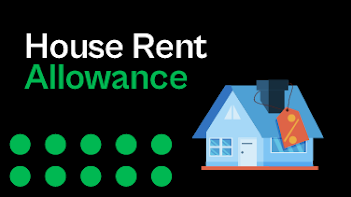HRA -House Rent Allowance
What is HRA?
HRA, or House Rent Allowance, is a wage given by employers to staff members to cover housing costs associated with leasing a home. The HRA is a crucial part of a person's pay. Both salaried and self-employed people are covered by HRA.
According to rule 2A of the Income Tax Rules, HRA for salaried individuals is accounted for under section 10 (13A) of the Income Tax Act. Similar to this, self-employed people are not taken into account for HRA exemption under this provision but may still be eligible for tax benefits under section 80GG of the Income Tax Act.
If you have opted for the new tax regime then you cannot avail tax exemption of house rent allowance. HRA is available only under the old tax regime.
HRA Exemption/Deduction
Salaried employees are eligible for HRA exemption for the income tax that they are required to pay each financial year. As per the Income Tax Act, for the calculation of house rent allowance, the least of the following three components is taken into consideration -
- Actual HRA received by the employer
- 50% or 40% of the basic salary depending upon a metro or a non-metro location, respectively
- Rent paid minus 10% of basic salary
Where, basic salary refers to basic + DA + commission on sale at fixed rate.
HRA Rules
Some of the most prominent rules pertaining to house rent allowance are mentioned below.
- For those who reside in non-metropolitan areas, 40% of the base pay is determined as HRA; for those who reside in metropolitan areas, the amount is 50%.
- In order to avail HRA benefit it is not necessary that you pay rent only to a landlord. Individuals can pay rent to their parents and show relevant receipts to claim HRA exemption.
- However, you cannot claim HRA exemption by showing that you pay rent to your spouse. This is not permissible under the income tax law.
- Rent receipts need to be submitted as proof in order to avail tax exemption benefit.
- PAN card details of the landlord need to be furnished so that relevant tax deductions can be made from his/her income from property (rent received).
- PAN details of landlord are required only if the rent paid exceeds one lac rupees per annum.
- Employees who live in their own homes yet receive HRA are still subject to income tax.
How to Claim Deduction Under Section 80GG
In order to claim deduction under Section 80GG of the Income Tax, the lowest of the following will be taken into account:
- Rs.5,000 per month
- 25% of the adjusted total income
- Actual rent which is 10% less of the adjusted total income
Adjusted Total Income is the total income minus the long-term capital gains, and short-term capital gains under section 111A, section 115A or 115D and deductions from sections 80C to 80U.



Very insightful
ReplyDeleteInformative
ReplyDeleteAmazing content
ReplyDeletewell explained
ReplyDelete